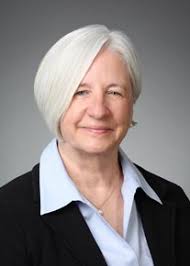(7-6-17) I first became friends with Mary Zdanowicz when we were appointed to serve on a Virginia task force rewriting the state’s involuntary commitment standards. Several members of that committee, who had mental illnesses, were adamant about not changing the “imminent danger” language that had stopped me from getting my son help when he clearly was psychotic. Sadly, the meetings turned contentious. Through it all, Mary took the high ground. She ignored unnecessary bickering and insults, and never disclosed that she had a mental illness even though one of our antagonists considered us the enemy and felt that her diagnosis gave her more insights than Mary or any of the rest of us could possibly have. I came to greatly admire Mary’s dedication and determination – especially under fire. I was not surprised when I learned she was running for the NAMI board on a “Focus on Serious Mental Illness” ticket because, in her own life and professionally, Mary always has advocated for the sickest of the sick. Here’s her speech from the convention. She was not elected.
MARY ZDANOWICZ – FOR SOME: HOPE IS NOT ENOUGH
Why Focus on Serious Mental Illness?
Because NAMI is the only organization for people with serious mental illnesses and their families. 
To be clear, serious mental illness is not based upon diagnosis alone. It is not just schizophrenia and bipolar disorder.
It depends on the duration and severity of functional impairment of any diagnosable mental illness. It includes anxiety disorders, PTSD and others.
In recent years though, NAMI elected officials have broadened the organization’s focus.
This would be fine except it seems that the focus on mental illness is diminishing and “mental health disorders” are gaining prominence.
It is getting hard to distinguish NAMI from Mental Health America.
But this broad focus comes with a price. In the President’s Perspective section in the recent issue of the Advocate, NAMI’s President wrote about the future this way:
“Yet decisions still need to be made. If we embrace a new direction, then we must abandon an old one.”
The old NAMI was critically important to people with serious mental illnesses and their families. The Decade of the Brain in the 1990s changed everything.
Science proved that bad parenting does not cause serious mental illnesses. It’s nobody’s fault – they are biological brain disorders.
NAMI was the Nation’s Voice on Mental Illness. NAMI used its voice to promote programs that helped the most seriously ill: PACT Teams, which were called “hospitals without walls”; the Clubhouse model and psychosocial rehabilitations programs. Members passed a resolution in support of AOT in the 90s. At the end of the decade, NAMI was at the forefront promoting mental health courts, crisis intervention training and jail diversion.
Now NAMI sounds like every other mental health organization.
We can get a glimpse of the new NAMI from the instructions for “How We Talk About NAMI” on the website.
This recent NAMI guidance instructs us not to use the words brain disease or brain disorder. It took years to educate the public that schizophrenia, bipolar disorder and other mental illnesses are biological brain disorders.
We are not to use the word suffer because the new NAMI “opts for more hopeful language that is forward looking.”
While NAMI’s message of recovery and hope is very appealing, we cannot forget that some people may never achieve full recovery. For some people, hope is not enough.
It makes no sense to deny people are suffering.
The public supports research and services for the most severely ill when they understand that people who do not receive effective treatment are suffering.
The 90s was a big decade of the Peer Movement in NAMI. The Peer Council was formed and Peers now play a pivotal role in the organization.
Now I recommend forming a Family Council because the family voice has been diminished over the years.
Families need NAMI as much if not more than they did when those few mothers sat around the table and created this marvelous organization that has saved so many lives.
Again, we cannot afford to lose the only organization for people with serious mental illnesses and their families.
If elected, I will Focus on Serious Mental Illness so that we won’t have to abandon the old to bring in the new.



